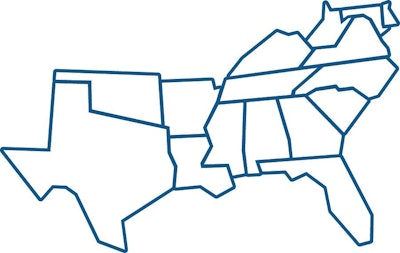 Southern Regional Education Board (SREB) member states
Southern Regional Education Board (SREB) member states
“It is troubling to say the least,” said Dr. Stephen Pruitt, president of SREB. “We’re now trying to bounce back from a pandemic, and we’re seeing the job market shifting to all or most livable wage careers requiring some postsecondary degrees. If we continue down the road that we’re on, where people are not engaging in postsecondary education, then we may see a lot of people who are unemployable by 2030.”
SREB states include Alabama, Arkansas, Delaware, Florida, Georgia, Kentucky, Louisiana, Maryland, Mississippi, North Carolina, Oklahoma, South Carolina, Tennessee, Texas, Virginia, and West Virginia.
SREB’s Fact Book on Higher Education and 16 individual state data reports point to how enrollment in two-year colleges between 2014 and 2019 fell by roughly 7% in SREB states compared to 11% nationwide. Some states saw nearly a 20% drop in that same time.
According to recent data from the National Student Clearinghouse, two-year college enrollment then dropped by 15% nationwide in fall 2020, followed by an estimated one-year decline of 7.8% in fall 2021.
“We’re looking at a national crisis right now,” said Dr. Jason Lane, dean of the College of Education, Health, and Society at Miami University in Ohio, referring to recent higher education trends in the country overall. “When we see fewer students coming into higher education, that has a long-term, potentially negative impact on our ability as a nation to be competitive, to innovate, and to continue to lead the world around issues of research and development. For a lot of reasons, we should be paying attention to this right now.”
By 2030, SREB also found that dependent groups—those who are under age 25 or older than 64, thus not part of the primary workforce—are expected to reach 53% of the SREB region’s population. These groups would outnumber working-age adults, making the potential toll of college enrollment declines on the workforce particularly urgent.





















